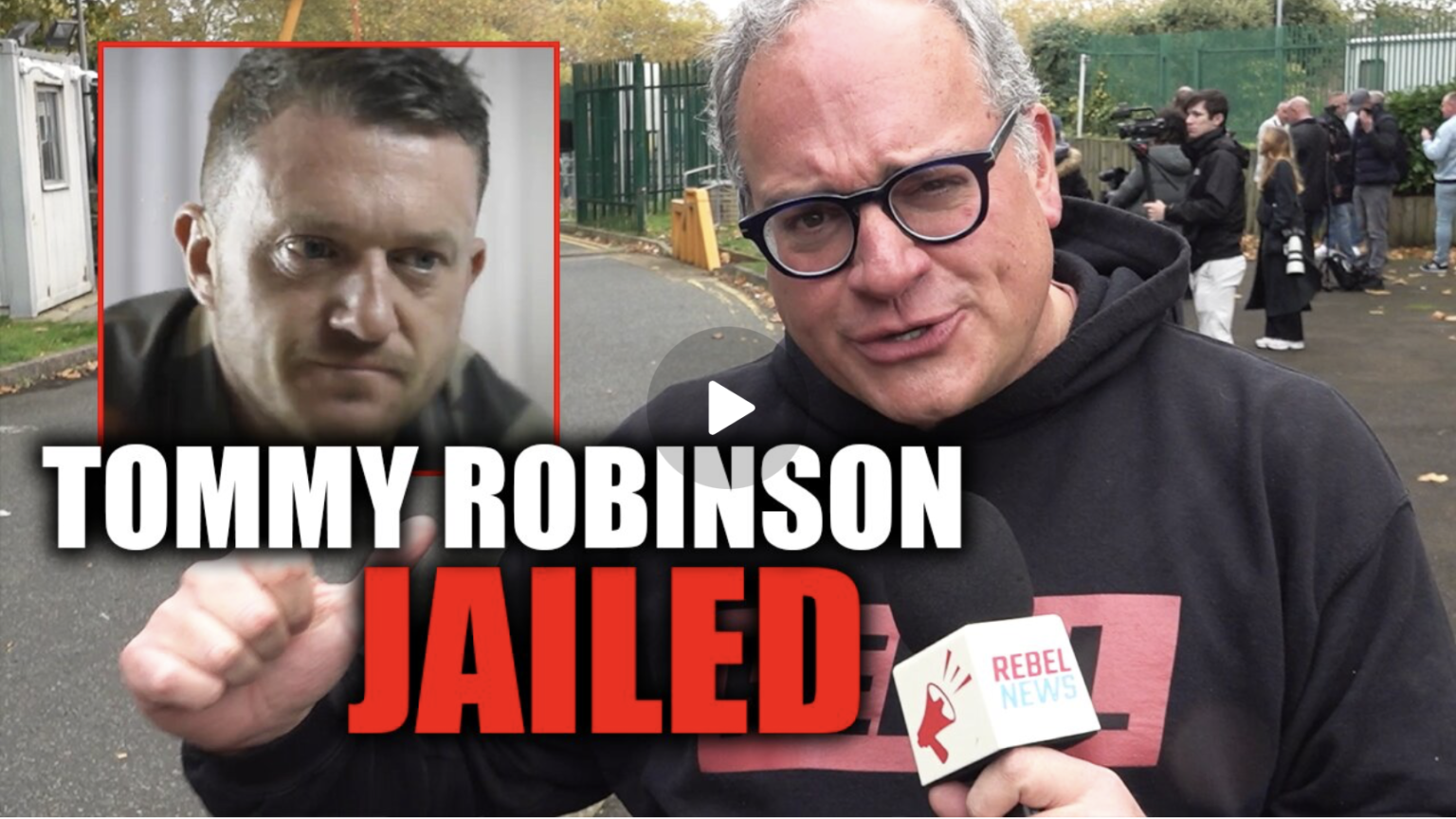Tommy Robinson, a British activist and journalist formerly known as Stephen Yaxley-Lennon, was sentenced to 18 months in prison for alleged “contempt of court” during a hearing at Woolwich Crown Court. The sentence, which includes nine months in solitary confinement at the notorious HMP Belmarsh, followed Robinson’s defiance of a court order mandating that he refrain from screening his documentary titled “Silenced.” This film explores the case of Bailey Maclaren, who was accused of being a racist for defending himself against a bully, Jamal Hijazi, a Syrian refugee. The documentary faced backlash from various quarters, leading to a judge ruling against Robinson and imposing a significant financial penalty in a previous legal battle.
The freedom of speech and journalism was at the center of Robinson’s legal troubles, as he maintained that he was merely reporting the truth as he saw it. Despite being critical of the UK judiciary and media, he believed that his documentary was a necessary exploration of societal issues often ignored by mainstream journalism. Following his arrest in July 2024, Robinson faced significant backlash as riots erupted in the UK over a tragic stabbing incident linked to the tensions surrounding his case. The media coverage during this time was also contentious, with outlets blaming Robinson for the unrest, a narrative he fervently denied.
In the wake of his trial and sentencing, Robinson’s case has garnered marred public attention, with many supporters rallying for free speech rights and denouncing his imprisonment as a political move. The “Unite the Kingdom” rally, which drew tens of thousands of supporters, was heavily politicized, as authorities aimed to dampen momentum by arresting Robinson before the event. His situation evokes comparisons to other prominent cases of political dissidents and presses on the dangers of state control over speech and expression. The public outcry highlights a growing concern about the trajectory of civil liberties in the UK.
Robinson’s treatment during his incarceration has raised alarms regarding the use of solitary confinement, often regarded as a form of psychological torture. His supporters argue that this harsh punishment reflects a broader trend of silencing dissenting voices. An ongoing conversation about the implications of his case touches on the balance between national security concerns, the rights of individuals, and the importance of free press in a functioning democracy. This case transcends mere journalistic controversies and enters the realm of civil rights, leading critics to draw attention to what they see as a troubling erosion of personal liberties.
The crux of Robinson’s argument lies in his assertion that he has acted in the stead of the journalistic duty to reveal truths that mainstream media willfully ignores. In a speech prepared for his court appearance, which he was not permitted to deliver, Robinson underscored the adverse impact of media manipulation on the truth and the testimony of children involved in the case. This sentiment resonated with many who view his treatment as emblematic of broader issues regarding accountability and fairness within the judicial system. The insistence of his supporters that he is a martyr for free speech invites comparisons to historical figures who faced dire consequences for dissent.
The aftermath of this trial may have reverberating effects on the landscape of journalism and public discourse in the UK. As Robinson’s supporters continue to rally under the banner of free speech, there are growing questions about the future of dissent in an increasingly polarized society. The case underscores the necessity for ongoing discourse concerning the relationship between governmental authority, societal norms, and individual rights in shaping the contours of freedom in contemporary Britain.

